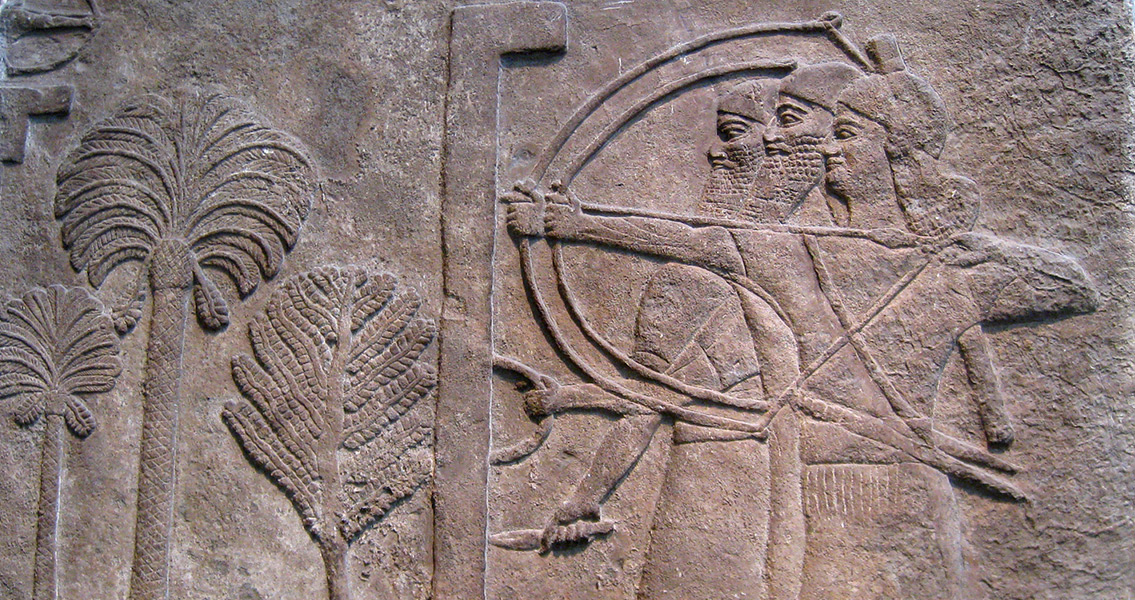<![CDATA[New research has found evidence of the existence of Post-Traumatic Stress Disorder (PTSD) 3,000 years ago. A paper, written by Professor Jamie Hacker Hughes and Dr Walid Abdul-Hamid, suggests that the condition existed in the ancient world. It had previously been thought that the first instance of PTSD was described in Herodotus' account of Athenian spear carrier Epizelus' psychogenic mutism, following his experiences in the Marathon Wars. Prof. Hacker Hughes, from Anglia Ruskin University, and Dr. Abdul-Hamid, Consultant Psychiatrist at the North Essex Partnership University NHS Foundation Trust, have presented evidence that psychological traumas were suffered much earlier in Mesopotamia (ancient Iraq) during the Assyrian Dynasty, which ruled the area between 1300 and 609 BCE. The paper, called 'Nothing New Under the Sun: Post-Traumatic Stress Disorders in the Ancient World', examined texts from ancient Mesopotamia which mention that King Elam's 'mind changed'. At the time, spirits of enemies he had killed in battle were deemed to be the cause of his mental distress. The pair argue that this mental anguish shows that King Elam suffered from PTSD. "Trauma was commonplace in Iraq’s ancient civilisations," the paper states. "Because of the frequent wars during the Assyrian period, the male population of the kingdom was exposed to significant trauma associated with the battles... It was this engagement in regular fighting that was probably the main cause of post-traumatic stress disorders." Mesopotamian men were required to serve one full year in the army as a soldier. The intensity of their year's service was extreme, as ancient strategists did not understand the importance of 'optempo'. It is now known that long tours of active duty can cause psychological trauma. As such, it is important to ensure individual soldiers have a sufficiently low operational tempo, or 'optempo.' Nowadays, aircraft 'flying hours,' ship 'steaming days' and 'tank driving miles' are all carefully measured in order to ensure the individuals associated with these vehicles are not overworked. Despite modern warfare being far removed from ancient battles, ancient soldiers were just as terrified as their modern counterparts when facing the risk of injury and death. Being at constant risk of death and witnessing fellow soldiers suffering appears to have been a major source of psychological trauma. "Moreover, the chance of death from injuries, which can nowadays be surgically treated, must have been much greater in those days," the paper states. All of these factors would have contributed to incredibly stressful and traumatic situations for soldiers on ancient battlefields. Many of the symptoms listed in ancient texts, particularly those describing psychological casualties of war, may be associated with the modern understanding of PTSD. "Generally, the symptoms described fit the symptoms of post-traumatic stress disorder as we understand them now," Hughes and Abdul-Hamid wrote. "The changes of mental state with fear, forgetfulness and depression are also symptoms that we see often in [modern] clinical practice." Hacker Hughes and Abdul-Hamid have shown that PTSD has a much longer history than previously thought. It is clear that psychological casualties of war are not a new phenomenon. The human mind is, and has always been, a fragile thing which can be damaged during periods of intense combat. For more information: www.nepft.nhs.uk ]]>
PTSD Found In Ancient Warriors
